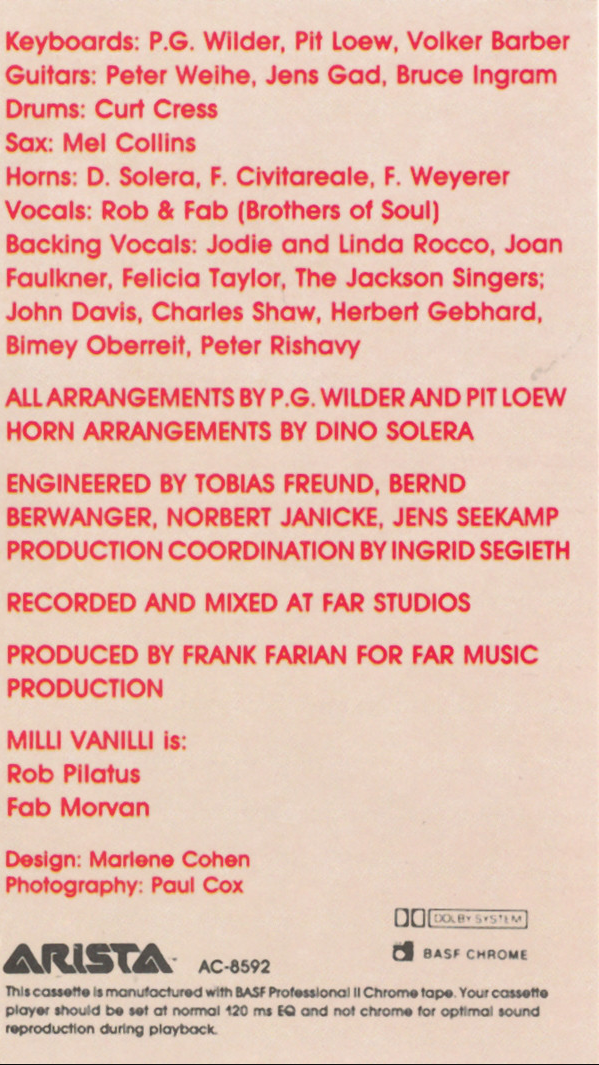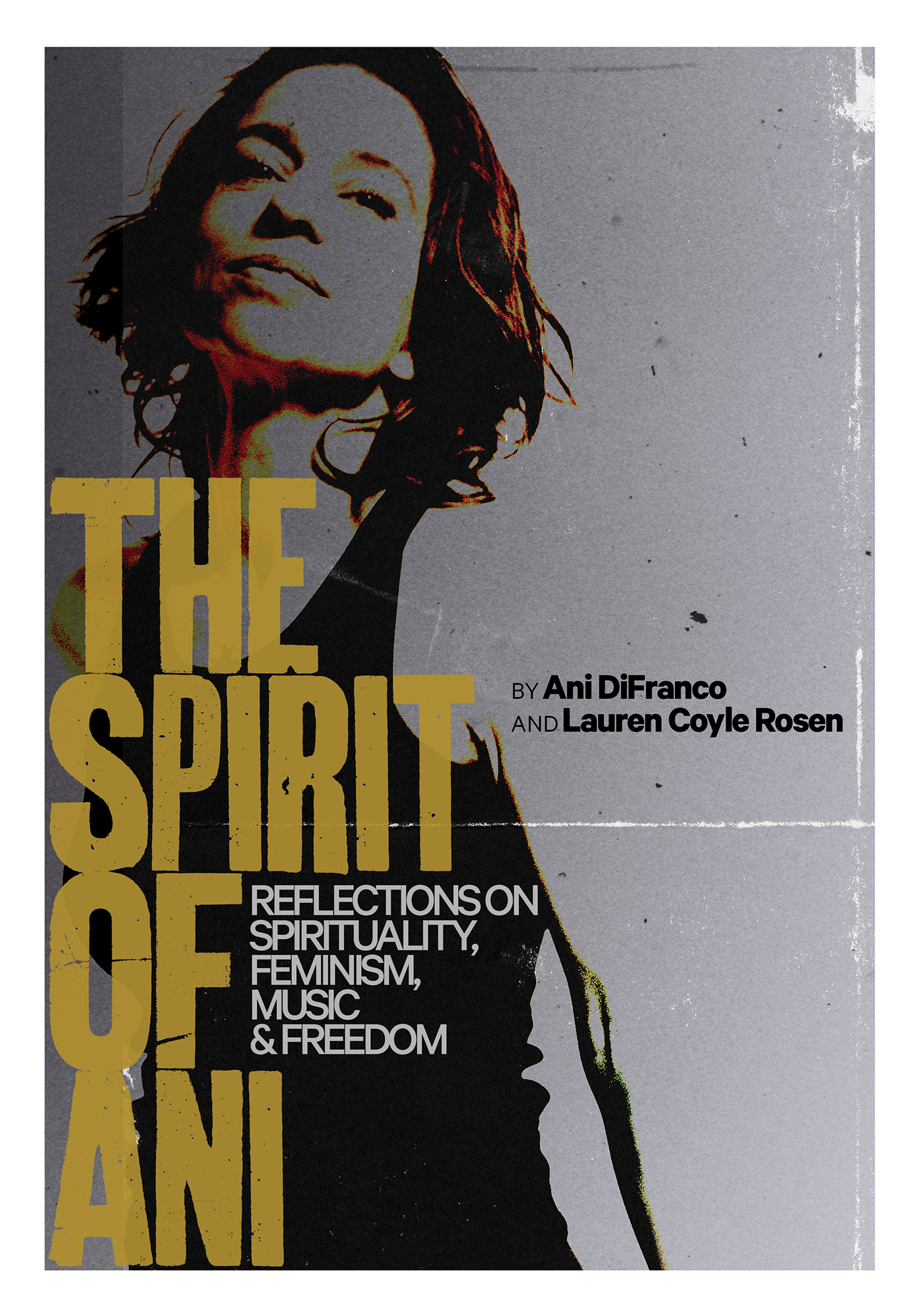Maybe you've seen the clip. There's Rob and Fab, the two model-handsome faces of Milli Vanilli, cavorting around onstage at a July 1989 MTV concert to their #2 hit "Girl You Know It's True" when the backing recording -- or is it main recording? -- gets stuck during the chorus. Rob clearly panics after he finds out what's going on, and after realizing he can't just mime "girl you know it's" a dozen times in a row, he runs off and hides out backstage until "Downtown" Julie Brown finds him and harangues him to get back out there. It's somewhere between funny and mortifying, like a lot of onstage musical snafus are, but it's taken on a kind of significance now that seems almost unreal.
The story of Milli Vanilli became so notorious that Behind The Music was practically created just to tell it. The Munich-based "duo" hit big in 1988 when their R&B-flavored Europop successfully crossed the Atlantic, then became one of the most famous frauds in pop music history when it was revealed that Rob Pilatus and Fab Morvan didn't do any of the singing on the record. They were less the group's frontmen than an actual front. But the infamy this earned them -- including the revoking of the Best New Artist Grammy that they won 30 years ago -- put them in a position they had no place being in, a traditionally mercenary but acceptable product of pop-biz smoke-and-mirrors bullshit that went haywire when the industry tried to foist legitimacy upon them. Milli Vanilli might be familiar as a punchline, but there's just as much craziness going on in the setup.
In another context -- another continent, another decade, another scene, but the same Svengali -- the Milli Vanilli approach had successful precedent. Frank Farian, the German producer/songwriter who brought Milli Vanilli into the world, had already hit paydirt with false-front pop. His Euro-disco sensation Boney M. sold nine figures' worth of records despite live male lead Bobby Farrell not actually contributing to the studio albums as a vocalist. (The voice on wax? None other than Farian's. Oh, those Germans.) Thanks to a remarkably shitty contract -- 100,000 marks in exchange for image rights and royalties -- Farrell was doomed to a life in poverty once the band broke up in the mid '80s, and the stress and toll of having to hit the road constantly just to support himself and his family was a factor in his death in 2010.
Was it a scandal when it turned out that Farian did Farrell's vocals? Not really -- Boney M. were a bubblegum disco act who did their biggest business in 1970s Europe. A producer-driven group like that staffed with largely-anonymous session players and ringer vocalists was not a severe musical crime in that time and place the way it was in early '90s America. In the States, such loosely-attributed trickery might come under deeper scrutiny, even if the idea of being an anonymous, faceless musical entity was appealing enough to, for example, Nile Rodgers and Bernard Edwards that their pictures didn't even appear anywhere on the first Chic LP. (Just put a couple models on the cover -- it worked for Roxy Music.) But whatever, it's pop music. Release something people will like, make your money, and it'll all work out on its own as long as nobody gets frustrated over how big their piece of the pie is.
And that's how Milli Vanilli became stars. Farian had caught wind of a 1987 single by Baltimore group Numarx, "Girl You Know It's True," that had been getting some spins in German nightclubs, and recorded his own demo version with a pair of female backup singers in hopes of finding a couple lead vocalists to complete it. At the time, Rob and Fab were a couple dancers and aspiring singers struggling to get their career going under the Milli Vanilli name. So when Farian invited them into the studio to listen to the demo, they jumped at the chance to become his next big project. The problem was, Farian was more thrilled with their music video-ready heartthrob looks than their singing abilities. (As he put it to the November 11, 1990 Washington Post after the scandal broke, "They sing like many others... they don't have enough tone and quality in their voices.")

But instead of shelling out for vocal coaches and working with Rob and Fab to turn their heavily-accented voices into something palatable for an international audience, Farian just finished "Girl You Know It's True" with studio singers. Some, but not all, of those singers were listed as "backing vocals" on the German pressing of Milli Vanilli's 1988 full-length debut All Or Nothing (The First Album), vague credits that didn't actually name Rob and Fab at all anywhere in the liner notes. Those "backing vocals" credits carried over into the updated version put out on Arista the following year as Girl You Know It's True, but explicitly added "Vocals" credits for Rob and Fab.
One of the actual singers was Charles Shaw, a US Army vet and small-time recording artist who was paid $6,000 to do the rap part on "Girl You Know It's True," then kicked out of the operation when he threatened to talk about his involvement with the record. The other session singers were less outwardly frustrated with the lack of recognition at the time. Both singer Brad Howell, who'd done vocals for big-in-Europe disco groups Supermax and Chilly (and played drums on Wolfgang Bock's Klaus Schulze-produced Berlin School cult classic Cycles), and Shaw's replacement John Davis, a mid-tier funk singer and American-born German transplant, kept the secret to themselves. As lifers approaching middle age, they were more or less fine working behind the scenes as the young, handsome proxies did all the press.
It all fell apart simply because Milli Vanilli became too successful. Maybe it was too-much-too-fast syndrome -- a group that came from seemingly nowhere to notch three straight #1 singles ("Baby Don't Forget My Number"; "Blame It On The Rain"; "Girl I'm Gonna Miss You") to go along with a #2 album debut demanded the sort of under-the-microscope attention that the turn of the '90s peak-MTV and CD-boom era thrived on. All that coverage, and people were bound to notice the gulf between Rob and Fab's heavily-accented broken English and the smooth, American-sounding voices on the record. And a backlash seemed inevitable. Parodists and detractors picked up something artificial about them: They were too pretty, too European, too superficial.
Now add in all the money that comes with a level of success like that, and someone's bound to agitate the whole situation until the foundation collapses. That wasn't the industry's decision, of course. As lies went, Milli Vanilli were a lucrative one, and labels like Arista were fine making millions as long as the artists, phony or not, kept content with their thousands. The engineers knew, the A&Rs knew, the higher-ups knew. Even Clive Davis was wise to it by the middle of '89, half a year before the Grammys were even handed out -- at least, according to Rob and Fab themselves, who claimed that Davis was fully aware of the situation but was just fine keeping up the marketing facade. When Charles Shaw went public in December '89 with his claim that he'd sung some of the vocals on Milli Vanilli's recordings, Farian allegedly gave him $150,000 to retract the claim and shut up.
One month later, Milli Vanilli won three American Music Awards, including Favorite Pop/Rock New Artist, Favorite Soul/R&B New Artist, and Favorite Pop/Rock Song. Their infamous Best New Artist award at the 1990 Grammy Awards followed a month later. And here we come to the crux of the matter: It wasn't that Milli Vanilli were faking it, it's that they were rewarded for faking it by actual representatives of the record industry.
"I hope this revocation will make the industry think long and hard before anyone ever tries to pull something like this again," Recording Academy President Mike Greene said upon requesting the return of the group's trophies -- a darkly ironic sentiment from an institution as reportedly corrupt as the Grammys. Yet Rob and Fab weren't going around feeling like they'd pulled one over on the public -- they felt guilty and shortchanged, down to Rob insinuating during their acceptance speech that "There are a lot of artists here in this room... [and] outside in the world who could achieve the same award that we achieved today." In other words, if they could win one, anyone could, and should have.
Milli Vanilli lived with that tension, and with that Grammy, until November 1990. The shit hit the fan not due to the diligent work of some music-media investigation or a guilty conscience that drove some industry whistleblower to pull the curtain down. It was Frank Farian, sick of Rob and Fab's demands to actually do their own singing on the next album, who decided it was time to pull the plug and reveal that Milli Vanilli weren't who they appeared to be. Farian knew people were skeptical, so he weighed the fallout of revealing the already halfway-open secret of the group against the potential financial hit of putting out another, possibly less successful Milli Vanilli album with Rob and Fab actually singing. He figured he'd throw the stars he made under the bus completely. Rob and Fab admitted to everything, but their side of the story -- that they'd been wanting to transition into roles as the group's actual lead singers, against their producer's wishes -- has largely been forgotten.
So what happened to everyone's careers after that? Well, the "real" Milli Vanilli had a brief run as... the Real Milli Vanilli, all the songs that were written for the Girl You Know It's True follow-up handed to the now front-and-center singers from the first album. The Moment Of Truth (eesh, that title) only came out in Europe, Asia, and a couple other international markets, doing OK in Germany but otherwise serving as a bizarre footnote to pop's ultimate flash-in-the-pan story. (Farian's next idea, Try 'N' B, swapped out Real Milli Vanilli singers Howell and Davis for a couple other pretty faces and reworked several of the Moment Of Truth tracks for their much-ignored self-titled 1992 album, thereby becoming the footnote to a footnote.)
As for Arista Records, they got sued for fraud and misrepresentation -- though the class-action lawsuit made sure to blame Rob and Fab, too. If you bought a Milli Vanilli album or went to one of their concerts, you could be reimbursed as much as $3 for presumably being duped. Clive Davis and Arista could take that hit just fine, though -- at least, they could by the end of 1992, thanks to The Bodyguard soundtrack's run as the single best-selling soundtrack album of all time. And finally, adding insult to injury: Weird Al Yankovic included a Milli Vanilli medley on his 1992 album Off The Deep End -- "Baby Don't Forget My Number" and "Blame It on the Rain" became "The Plumbing Song" -- but he admitted to Dr. Demento in an interview that "a Milli Vanilli parody... I guess is kind of redundant at this point."
Then there's Rob and Fab themselves. It turns out they could sing OK -- not great, but nothing a good producer couldn't compensate for. (They did not have a good producer, much less anyone to tell them that maybe covering Cheap Trick's "I Want You to Want Me" was an awkward fit, and Rob & Fab only had a couple thousand copies pressed -- not sold, pressed.) But even if they had some sympathy in the music world -- George Clinton offered to give them some funk lessons and make them a reclamation project -- their punchline status was so etched in music history that a comeback seemed severely unlikely. That first-ever Behind The Music episode hinted at the possibility, with Farian finally relenting and helming production for the marked-for-1998 project Back And In Attack. But Rob Pilatus was struggling with depression and drug use, and his overdose death on April 2, 1998 -- right on the eve of a tour to promote the new album, which was subsequently shelved -- closed the book on Milli Vanilli entirely.
It's hard to make excuses for Milli Vanilli. As a project, they were a cynical trick on the record industry, the music-buying public, and, in the end, all the artists involved, including the quasi-frontmen of the group. They were a tragicomic example of what could pass as no big deal in Europe becoming a major pop music scandal in the States, and a turning point in the popular conception of mainstream pop music that rendered the whole business suspect. But it's sobering to know that it was all for a handful of hits that, if decent, weren't good enough to necessitate such a flimsy con that would ruin the lives of multiple artists -- and leave most of the higher-ups with clean hands. In the end, that's the real scam.






